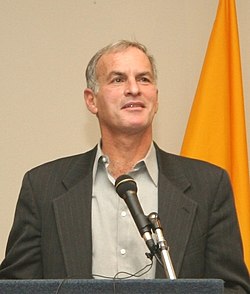This is a list of notable Jewish American historians. For other Jewish Americans, see Lists of Jewish Americans.
- Cyrus Adler [1]
- Herbert Aptheker [2]
- Bernard Bailyn [3]
- Daniel J. Boorstin [4]
- Norman Cantor [5]
- Ariel Durant [6]
- Stanley Elkins [7]
- Richard Ettinghausen, art historian [8]
- Norman Finkelstein, [9] author and historian
- Robert Fogel, economist and historian [10]
- Peter Gay [11]
- Yosef Goldman [12]
- Deborah Hertz [13]
- Raul Hilberg [14]
- Richard Hofstadter [15]
- Joseph Jacobs, [16] editor of the Jewish Encyclopedia
- Gabriel Kolko
- Bernard Lewis [17]
- Deborah Lipstadt [18]
- John Lukacs, Hungarian-born historian [19]
- Erwin Panofsky [20]
- Richard Popkin, historian of philosophy [21]
- Meyer Schapiro [22]
- Rosa Levin Toubin, historian of Jewish Texan history [23]
- Barbara Tuchman [24]
- Stanley M. Wagner, rabbi and academic
- Howard Zinn [25]


